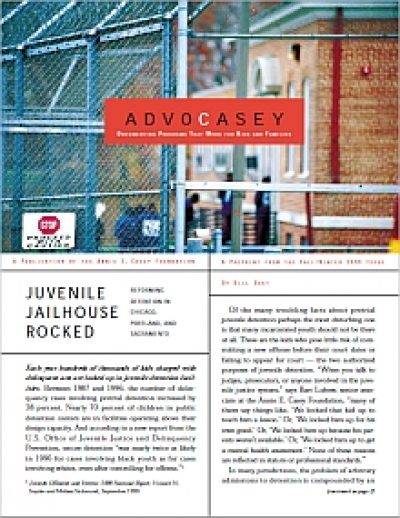No Risk, No Bars
Many incarcerated youth should not be locked up as they do not pose a risk to themselves or society.

Unnecessary lock up of kids is detrimental for the kids, the families and the taxpayers. When Bart Lubow and the Casey Foundation looked at the juvenile detention field in the early 1990s, it was obvious that critical reforms were well overdue. Readers will find in this article a hardcore look at juvenile detention reality before and after Casey launched its Juvenile Detention Alternatives Initiative (JDAI) through the eyes of grantees and Foundation staff.
Kids who are put into detention are more likely to stay locked up and be sentenced to jail, whether it’s necessary or not. But if they are released to parents or a program instead, and stay trouble free, judges are much more likely to let them remain free. The problem of arbitrary admissions is compounded by the lack of alternative options. Kids stay locked up because no one knows what else to do with them. Once officials see them locked up, they assume they should be locked up.